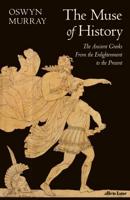Publisher's Synopsis
Excerpt from The Philosophy of Religion in England and America
The exposition of a Theism does not properly include the work of the sciences or of philosophy, and it need not therefore assume the portentous dimensions of very many of the treatises formally devoted to it. As matter of fact, many of the most significant statements occupy but a few chapters, or even but a few pages, in the introductory portions of Systematic Theologies or the concluding portions of Philosophical Systems. But too many writers have deemed it necessary to include much philo sophical, and even much scientific exposition, instead of assuming that that had been done and giving the results which they had elaborated or which they had accepted from others. I have therefore avoided entering upon any account of such extraneous work, a course which in large measure accounts for what may appear to be strange in the proportions of space allotted to the various writers, that allotment having been made quite apart from regard to the dimensions of their treatment.
Another cause of the bulkiness of many works on the subject is that much space is occupied with polemics; it has not sufficed for the writers to make good their own positions, there were opponents to be dislodged. This is quite legitimate, of course, and much light can often be thrown upon a writer's position by observing how he regarded the counter-positions. But in this introductory study I have confined myself almost exclusively to those portions of the writings cited in which a positive doctrine is enunciated.
About the Publisher
Forgotten Books publishes hundreds of thousands of rare and classic books. Find more at www.forgottenbooks.com
This book is a reproduction of an important historical work. Forgotten Books uses state-of-the-art technology to digitally reconstruct the work, preserving the original format whilst repairing imperfections present in the aged copy. In rare cases, an imperfection in the original, such as a blemish or missing page, may be replicated in our edition. We do, however, repair the vast majority of imperfections successfully; any imperfections that remain are intentionally left to preserve the state of such historical works.










